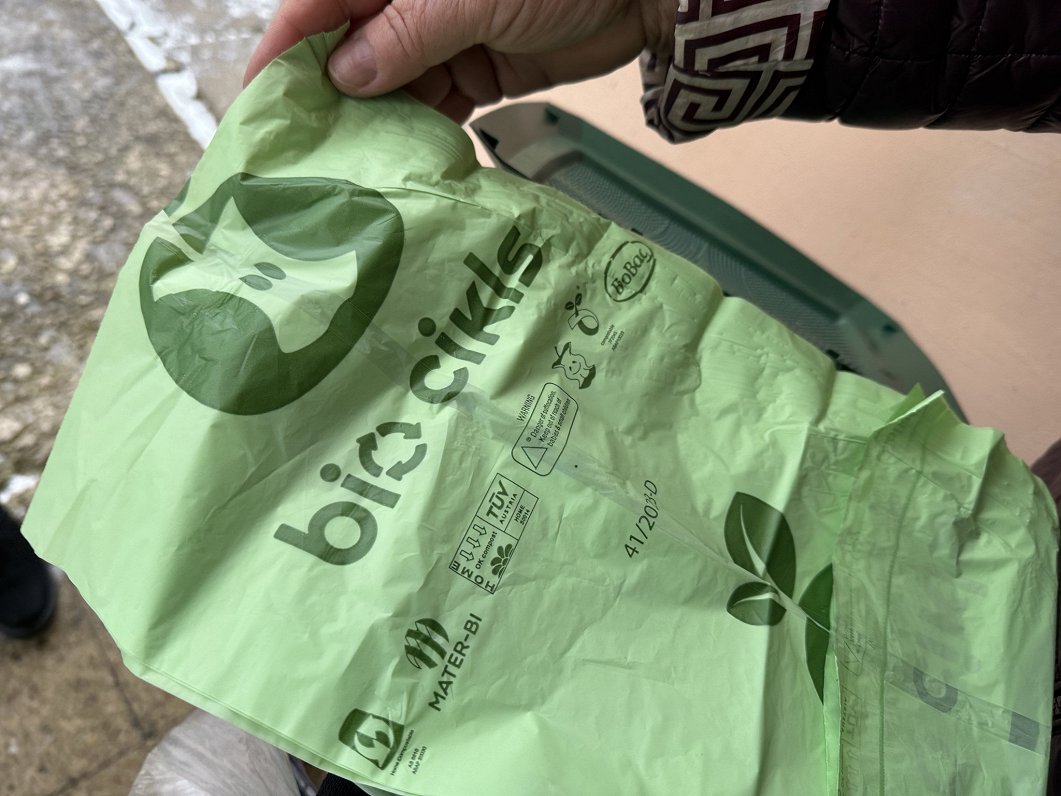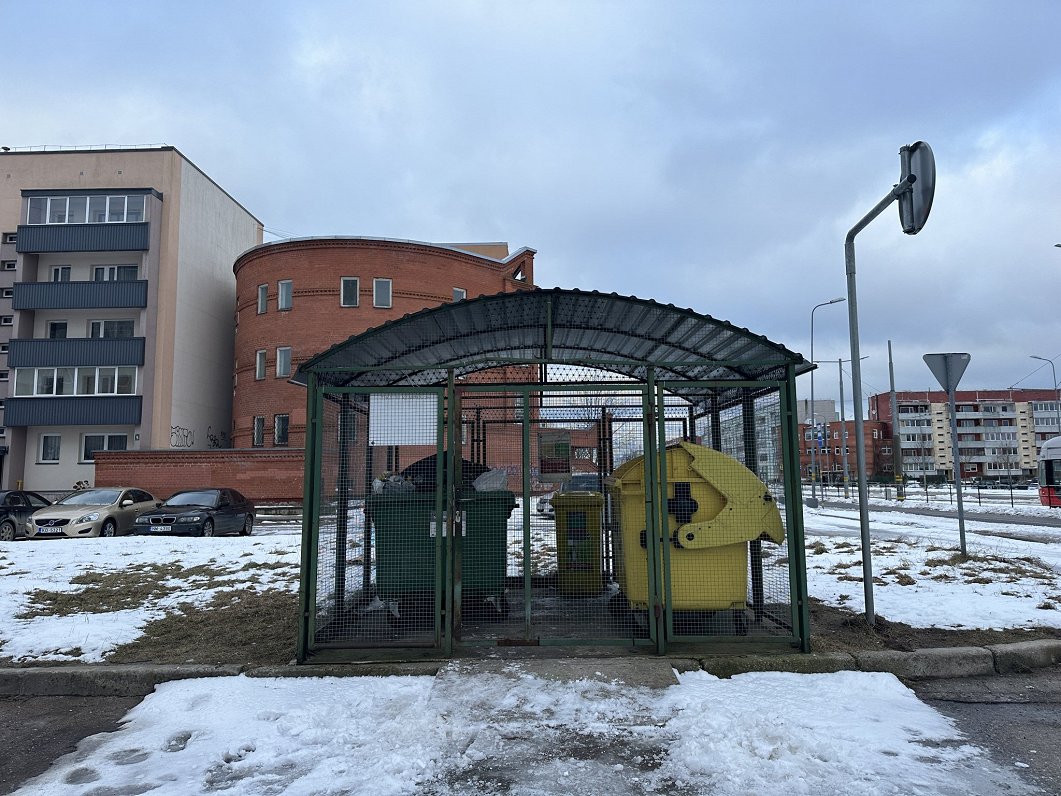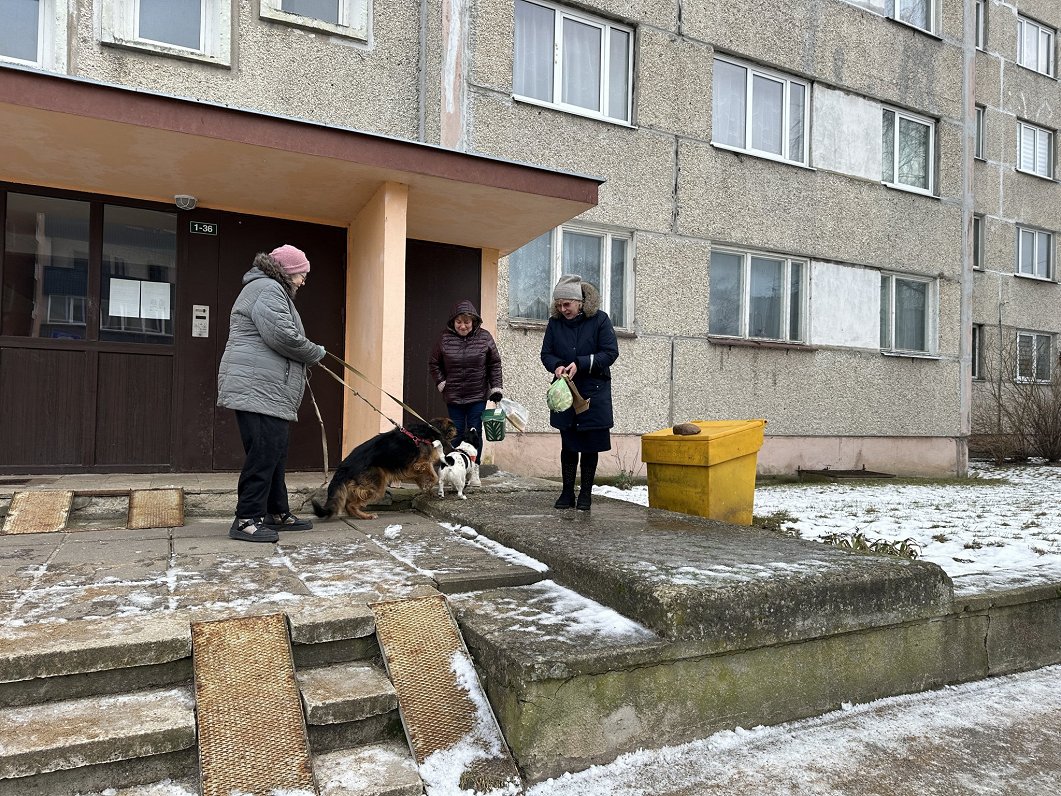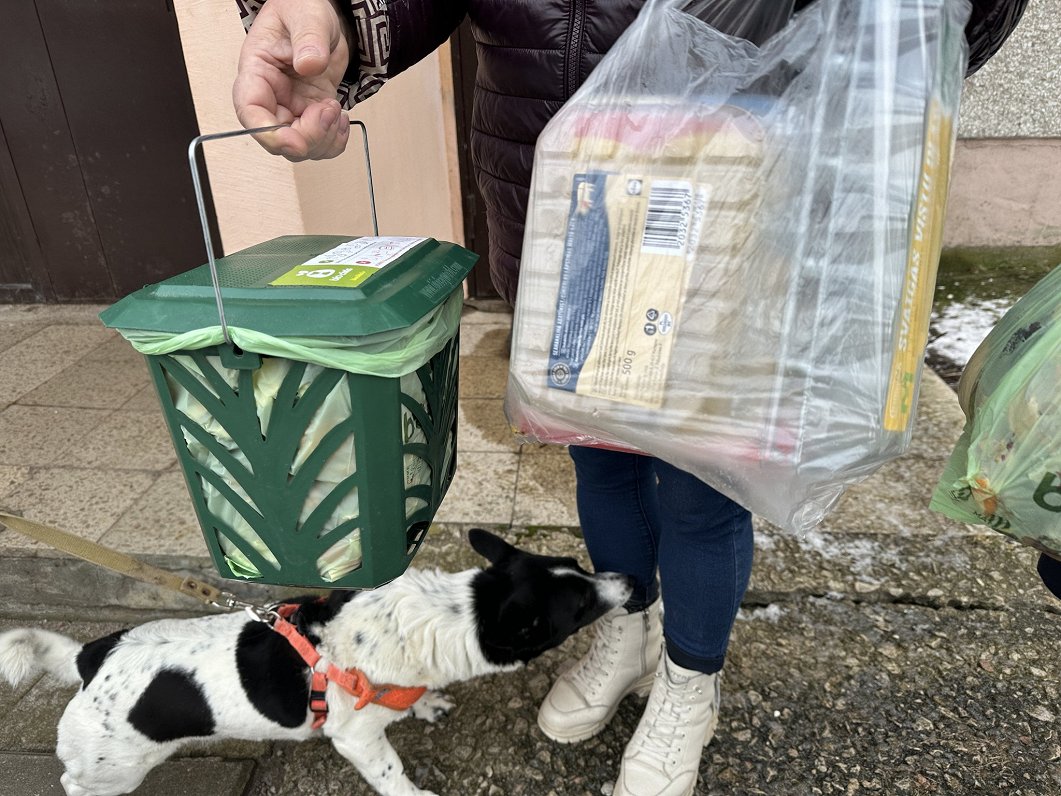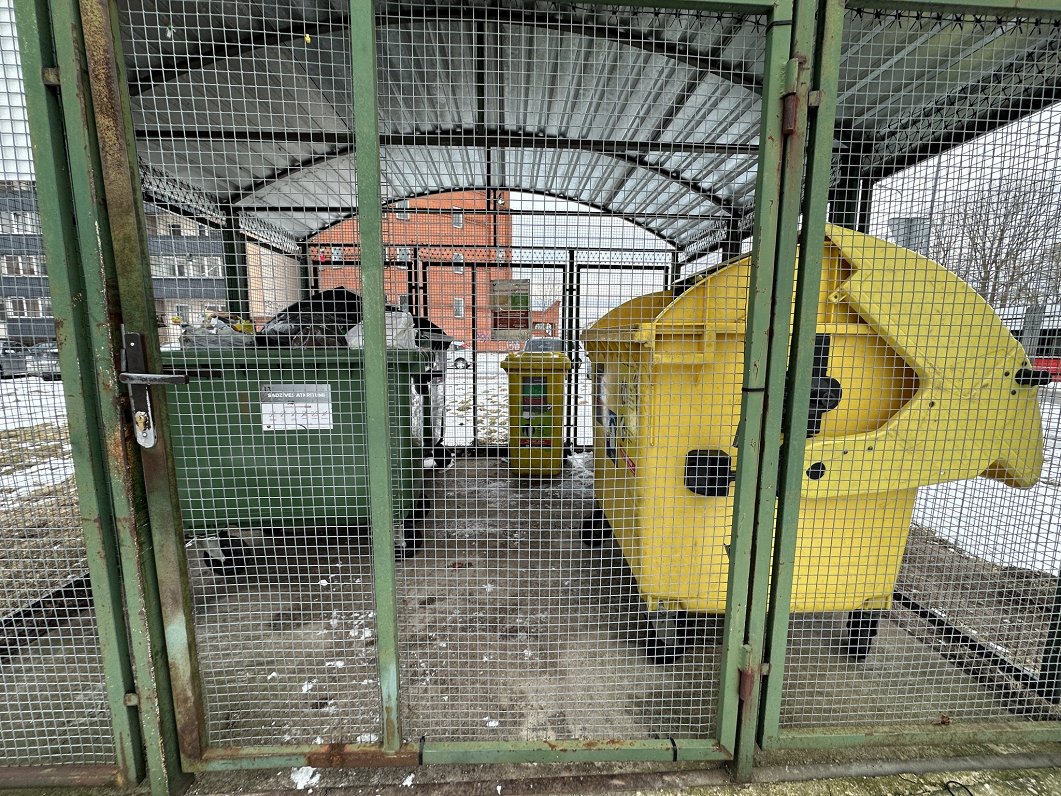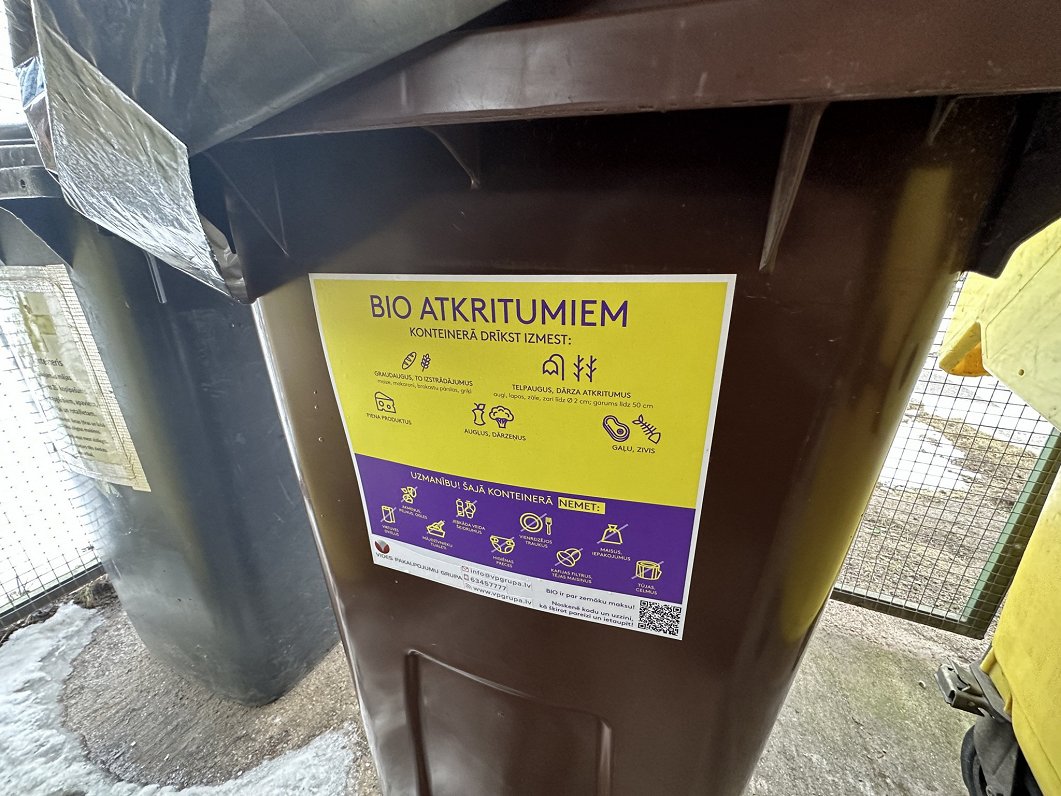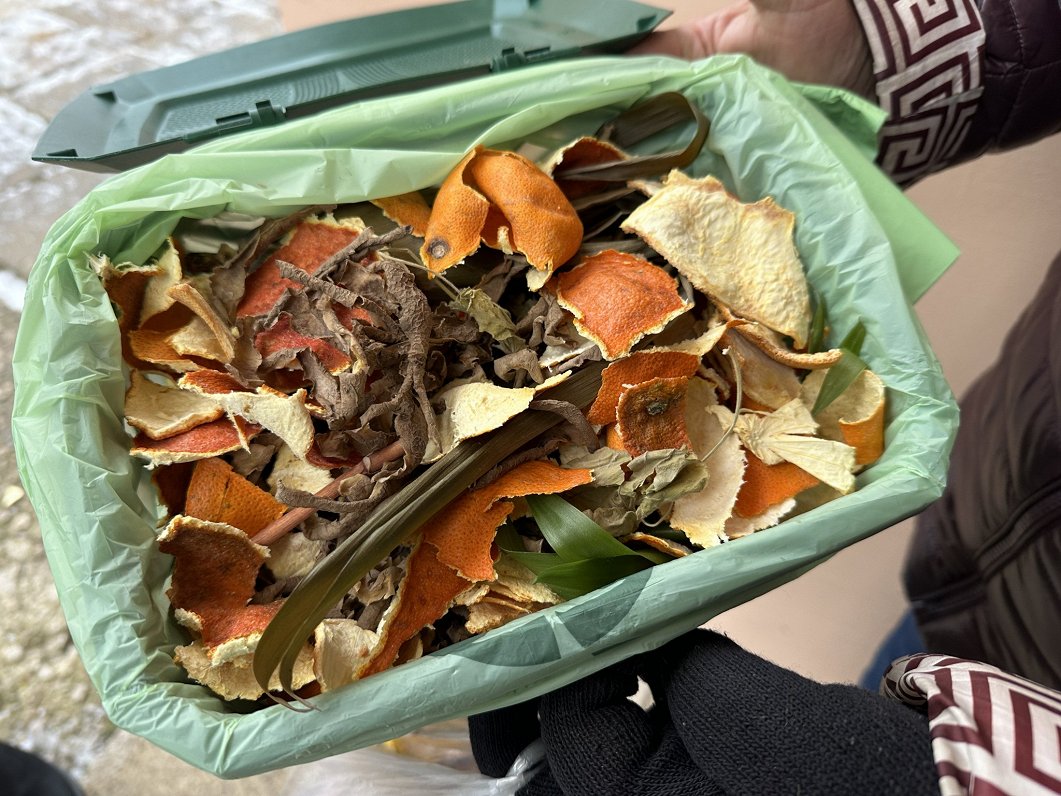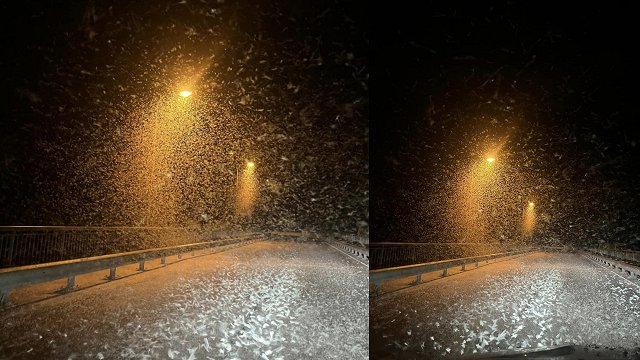Residents of House 26 of Mirdzas Ķempes Street have come out to toss the sorted garbage and tell with great enthusiasm why they are happy to sort the garbage. Astrīda Katkeviča is one of the residents of the house who got involved in the project: "Here I have everything with plastic. [..] The green bucket was gifted to us by the house representative at the end of October. Here's what I've got - potato peels, leaves from flowers, everything left over. ”
The house representative, Tatjana Antonova, enthusiastically describes how she and the residents of the house started sorting biological waste, and the house has managed to save considerably:
“People are educating themselves. We have a full brown container every week. [..] If previously the municipal waste bill was up to 800 euros, then now up to 600 euros from house management money. The cost per person is €2.40 on average.”
In order to promote the sorting of bio-waste, Liepāja became one of the places in Latvia involved in the “Bio Cycle” movement. The project also included the landfill site in Grobiņa and the company Liepājas RAS, which started processing biological waste this year. In total, more than 500 households in Saldus, Liepāja and Grobiņa, three catering companies and two offices participated in the project.
“At the landfill, we checked each load. Three months have passed, the project has concluded, we have received just under 7 tonnes of biological waste at the landfill site. It's 27 collection times, we've stood there for each load to understand how people have sorted, ” Zane Ruperta, chief environmental management officer, says of the findings.
People have mostly sorted responsibly, but there have been minor impurities.
“The biggest mistakes we've seen, like an expired sausage has been thrown away with all the packaging. In the material we prepared, we urged residents not to toss food in the packaging, but to remove it from the packaging. If, however, people want to collect the waste in a plastic bag, then pour the contents into the brown container and place the plastic bag in the municipal waste bin.”
Currently, the biological waste at Grobiņa landfill is located in the new biowaste fermentation plant, where it is initially placed in tunnels and fermented. The first gates could be opened as early as late February or early March.
“What we are very interested in ourselves is how these compostable bags will have broken down. It's news for us too. Clean material is the best, of course. As Tatjana has said, we will produce electricity and light up a light bulb from this biological waste,“ Ruperta says.
